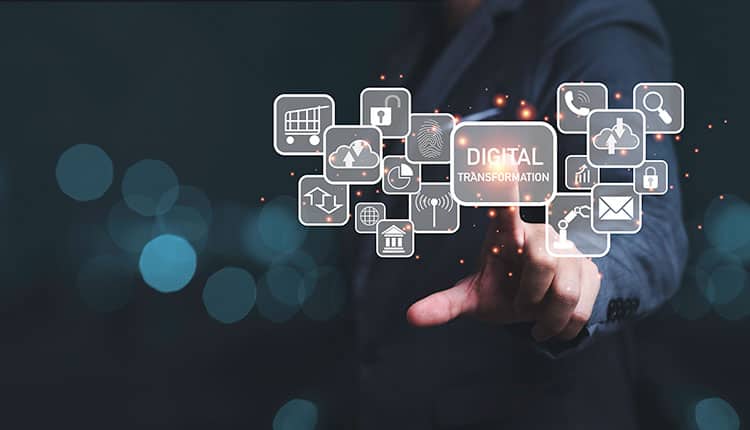By Dr.Nalini N, Professor & Head, Dean- Students’ Welfare Department of Computer science and engineering, Nitte Meenakshi Institute of Technology and Shri. Rajiv P, CEO, Pacecom Technologies Pvt Ltd.
The healthcare industry has always been at the forefront of innovation and the latest ground-breaking/emerging IT-enabled technologies are disrupting the healthcare sector and transforming the way we approach healthcare and have greatly improved the patient’s health conditions.
Healthcare is such a vast ecosystem that today, through the integration of technology, various areas such as personal healthcare, the pharmaceutical industry, remote healthcare, treatment of diseases, health insurance RTHS and medical facilities can be advanced through robotics, biosensors, smart beds, smart pills, etc. Health IT itself is a significant factor in the advancements in healthcare that leverage technologies such as IoT, drones, and cloud platforms to enable a revolution in healthcare as we know it today.
In this article, we will discuss many such technologies that have made a significant impact on healthcare.
1. Artificial Intelligence (AI)
AI has been hailed as a game changer in the healthcare Industry. AI algorithms have the ability to analyze a vast amount of data and make predictions based on the data. In healthcare, this means that AI can help to diagnose diseases, develop treatment Plans, and even predict patient outcomes
One of the most significant applications of AI in healthcare is in medical imaging. AI algorithms can be trained to analyze medical images such as X-rays, CR Scan, and MRI Scans, This allows the radiologist to detect abnormalities/anomalies more quickly and accurately, improving the chance of early diagnosis and treatment, AI is also being used to develop predictive models that can identify patients who are at the risk of developing certain diseases.
Another area where AI is making a significant impact is in drug discovery AI algorithms can be used to analyze large data sets of chemical compounds and identify potential drug candidates.
2. Augmented Reality (AR) and Virtual Reality (VR)
AR and VR is a technology that has been around for decades, but it is only in recent years that it has found significant applications in healthcare. AR/VR is being used in a variety of ways to improve patient outcomes. One of the most promising applications of AR/VR is in pain management AR/VT can be used to distract patients from painful medical procedures, such as Chemo-therapy or wound care. It has also been effective in managing disomic pain such as back pain, arthritis, and fibromyalgia etc., VR is also being used to train medical professionals, in surgeries, for example, we can use VR simulations to practice surgical procedures before performing them on patients This allows them to develop skills in a safe, controlled environment reducing the risk of errors and complications.
3. Blockchain- This distributed ledger technology helps in the secure transfer of patient medical records, manages the pharmaceutical supply chain, and facilitates healthcare researchers unlocking genetic code.
Blockchain’s ability to keep an incorruptible decentralized and transparent log of all patient records makes it an apt technology for security applications, The decentralized nature of this technology allows patients’ decors and healthcare sectors to share the same information quickly and safely.
4. Telemedicine- The world health Organization (WHO) defines telemedicine as “The delivery of health care services where distance is a critical factor, by all healthcare professionals using information and communication technologies for the exchange of valid information for diagnosis, treatment and prevention of disease and injuries, research and evaluation and for the continuing education of healthcare provides, all in the interests of advancing the health of individuals and their communities (WHO)
Telemedicine helps doctors and patients to communicate directly via audio and video conferencing. The different types/ methods of telemedicine include Real-time telemedicine, which makes it easy to do a doctor-patient visit anytime, anywhere, Remote patient monitoring, store-and-forward practices, consultation between specialists and primary caregivers, Medical Imaging, Telemedicine Networks etc.,
5. Internet-of-Things (IoT)- The use of the Internet -of things (IoT) in the healthcare industry, personal healthcare, and healthcare-related payment gateway applications has increased tremendously. New opportunities for data collection have been provoked especially by the sophistication of mobile technologies and wearables. Smartphones as well as wearables are equipped with plenty of IOT sensors ranging from accelerometers and microphones to GPS sensors and gyroscopes and enable the capture of longitudinal, real-time health information such as blood pressure, sleep pattern, and heart rate from vast amounts of people. Advances in health platforms (e.g. Apple HealthKit or Google Fit) also allow the bundling of fitness and medical data from different sources and make these available for sharing with healthcare professionals.
IoT applications revolved around remote monitoring and telemonitoring as the main scope of telemedicine. Others include tracking, monitoring and maintenance of assets using IOT and RFID. More integrated approaches like the Internet of Healthcare Things (IOHT) or the Internet of Medical Things (IOMT) are becoming more popular.
Although these groundbreaking/ emerging IT-enabled technologies are disrupting the healthcare sector, the current Information Systems research has not yet incorporated an inter-organisational perspective of the digital transformation of healthcare. This neglects a wide range of emerging changes, including changing the segmentation of industry market participants, changing patient segments, changing patient roles as decision-makers, and their interaction in patient care. However, recent advances in IT have been made in terms of collection, storage, processing, analysis, and distribution of data enabling new forms of healthcare. Technology drives the health sector more than any other source. The healthcare sector should adapt to the latest technologies to achieve the best results for society as a whole.

